
Moroni: The Hidden Gem of the Indian Ocean
Nestled on the western coast of Grande Comore, Moroni is the vibrant capital of the Comoros archipelago. The city is a captivating blend of Swahili, Arab, and French influences, reflected in its charming architecture, bustling markets, and warm, friendly locals. A walk through the narrow streets of the old quarter, Medina, reveals picturesque alleys lined with beautifully crafted wooden doors and stunning mosques, each telling a story of the city's rich history. Moroni’s coastline offers serene views of the Indian Ocean, with pristine beaches and lush greenery inviting you to unwind. The city is also a gateway to the majestic Mount Karthala, an active volcano that promises thrilling hikes and breathtaking vistas. The local culture is vibrant and deeply rooted in tradition, with lively festivals and delicious cuisine that provide an authentic taste of Comorian life. For those seeking adventure or relaxation, Moroni provides a unique and unforgettable experience. From exploring the ancient ruins at Itsandra to snorkeling in crystal-clear waters, this city captivates with its natural beauty and cultural depth. Despite being off the beaten path, Moroni's charm lies in its unspoiled landscapes and the genuine hospitality of its people.
Local tips in Moroni
- Dress modestly, especially when visiting religious sites, to respect local customs.
- Learn a few phrases in French or Arabic to ease communication, as English is not widely spoken.
- Visit the local markets early in the morning for the freshest produce and to experience daily life.
- Hire a local guide for hiking Mount Karthala to ensure safety and gain insightful knowledge about the area.
- Check the local ferry schedules in advance if planning to visit other islands in the Comoros.
Moroni: The Hidden Gem of the Indian Ocean
Nestled on the western coast of Grande Comore, Moroni is the vibrant capital of the Comoros archipelago. The city is a captivating blend of Swahili, Arab, and French influences, reflected in its charming architecture, bustling markets, and warm, friendly locals. A walk through the narrow streets of the old quarter, Medina, reveals picturesque alleys lined with beautifully crafted wooden doors and stunning mosques, each telling a story of the city's rich history. Moroni’s coastline offers serene views of the Indian Ocean, with pristine beaches and lush greenery inviting you to unwind. The city is also a gateway to the majestic Mount Karthala, an active volcano that promises thrilling hikes and breathtaking vistas. The local culture is vibrant and deeply rooted in tradition, with lively festivals and delicious cuisine that provide an authentic taste of Comorian life. For those seeking adventure or relaxation, Moroni provides a unique and unforgettable experience. From exploring the ancient ruins at Itsandra to snorkeling in crystal-clear waters, this city captivates with its natural beauty and cultural depth. Despite being off the beaten path, Moroni's charm lies in its unspoiled landscapes and the genuine hospitality of its people.
When is the best time to go to Moroni?
Iconic landmarks you can’t miss
Retaj Moroni Hotel
Discover the charm of Moroni at Retaj Moroni Hotel, where modern comfort meets local hospitality in the heart of Comoros.

Golden Tulip Grande Comore Moroni Resort & Spa
Experience the unparalleled luxury and natural beauty of Golden Tulip Grande Comore Moroni Resort & Spa, a haven of relaxation in the heart of Comoros.
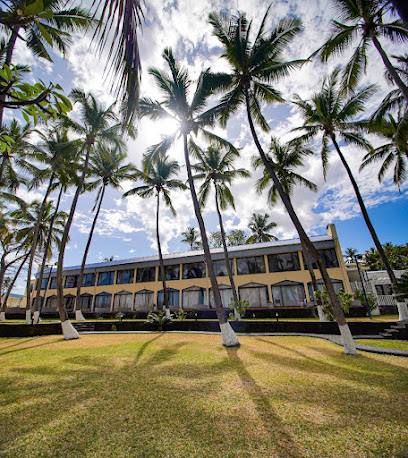
Prince Said Ibrahim International Airport
Explore the enchanting Comoros from Prince Said Ibrahim International Airport, your first step into a paradise of culture and natural beauty.
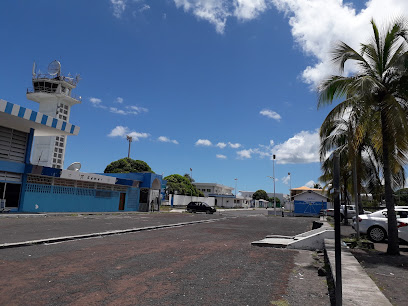
Ngazidja
Explore the breathtaking beauty and vibrant culture of Ngazidja, the largest island in the enchanting Comoros archipelago.
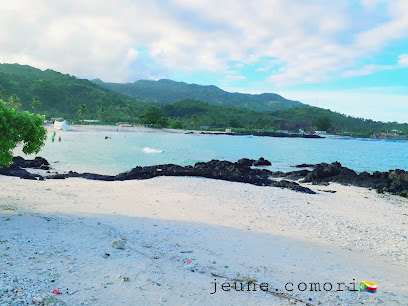
Hotel restaurant Jardin De La Paix
Experience the tranquility and culinary delights of Jardin De La Paix in Moroni, Comoros, a perfect blend of serenity and local culture.
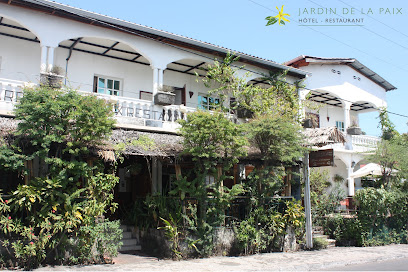
Maloudja Bungalows
Discover the serene beauty of Maloudja Bungalows in Mitsamiouli, Comoros - a perfect beachside escape with stunning views and cozy accommodations.
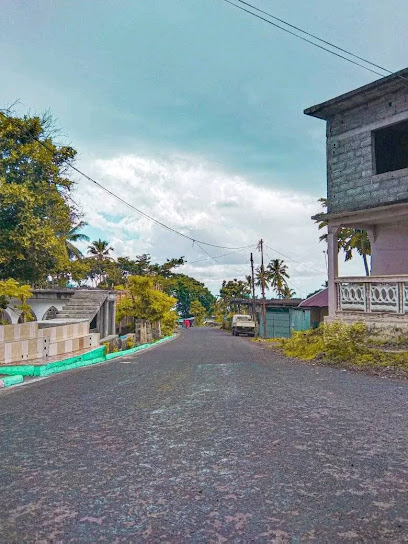
Bouni Beach
Discover the serene beauty of Bouni Beach, a tranquil escape in Comoros with golden sands, vibrant marine life, and local culinary delights.
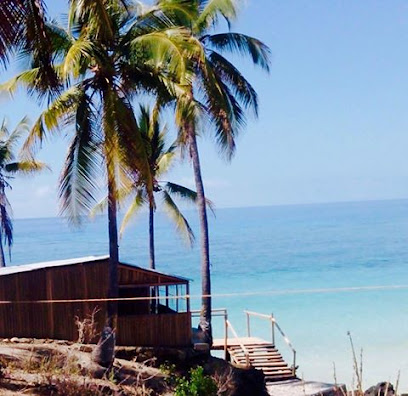
Grande Mosquée de Moroni مسجد
Discover the Grande Mosquée de Moroni, a stunning architectural marvel reflecting the rich Islamic heritage of the Comoros Islands.
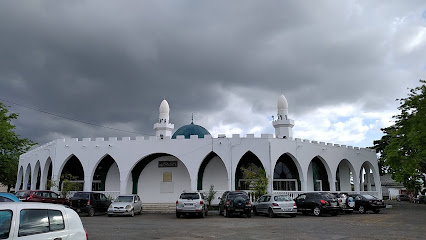
Dos du Dragon
Explore the stunning landscapes and rich culture of Dos du Dragon, an enchanting tourist attraction in Mitsamiouli, Comoros.
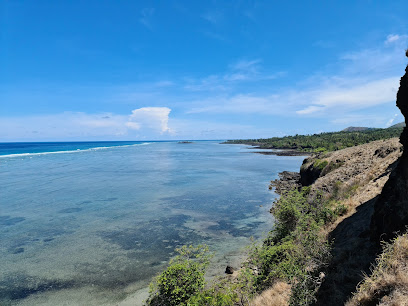
Le Habana
Experience the essence of Comorian cuisine at Le Habana in Itsandra Mdjini, where every dish tells a story of tradition and flavor.
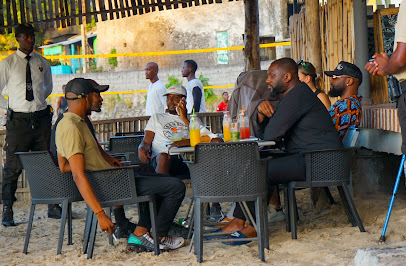
Adore Comores
Explore the stunning landscapes and rich culture of the Comoros Islands with Adore Comores, your trusted tour operator in Moroni.
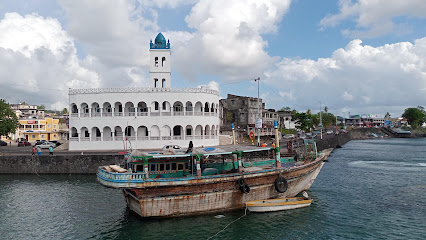
Comores Market VoloVolo
Explore Comores Market VoloVolo in Moroni for an authentic Comorian shopping experience filled with local flavors and vibrant culture.
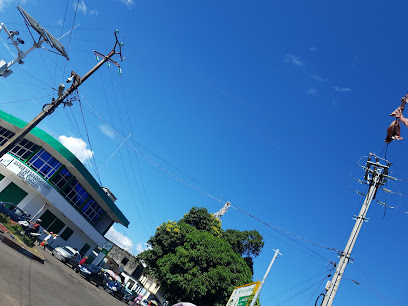
Mosquée Mssihiri wa Cheik Ahmed
Discover the architectural beauty and spiritual significance of Mosquée Mssihiri wa Cheik Ahmed in Moroni, Comoros, a must-visit for every traveler.
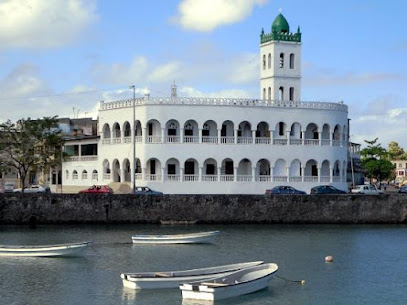
Villa Saifoudine
Experience the tranquil charm of Villa Saifoudine in Moroni, Comoros, where comfort meets local culture and stunning landscapes.

Le Gala - Mohéli
Explore the enchanting beauty and vibrant culture of Le Gala - Mohéli, a hidden gem in the Comoros archipelago, perfect for nature lovers and cultural enthusiasts.
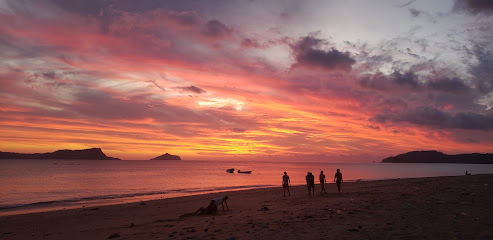
Unmissable attractions to see
Bouni Beach
Discover Bouni Beach, Comoros: Pristine sands, turquoise waters, and cultural charm await in this tranquil coastal paradise.
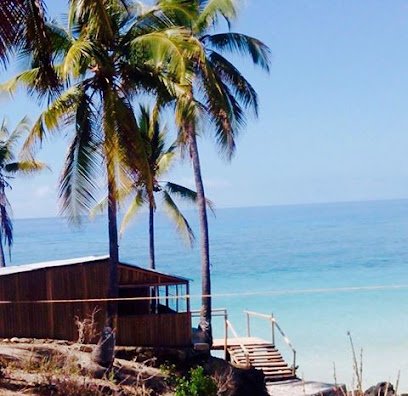
Dos du Dragon
Experience the breathtaking beauty and rich culture of Dos du Dragon in Mitsamiouli, a captivating tourist attraction in the Comoros Islands.
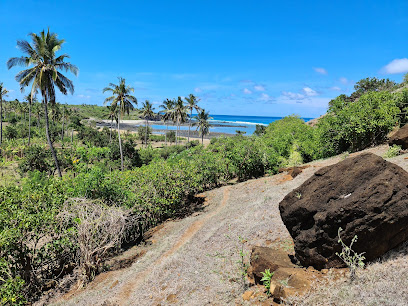
Grande Mosquée de Moroni مسجد
Explore the Grande Mosquée de Moroni, a stunning architectural masterpiece that embodies the rich Islamic heritage of the Comoros Islands.
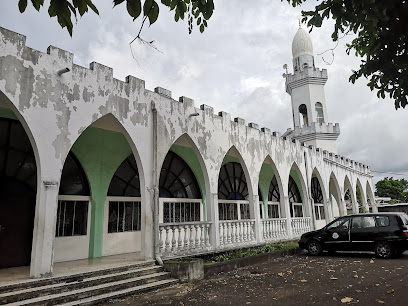
Plage de Moya
Explore Plage de Moya: A hidden paradise in Comoros with stunning beaches, crystal-clear waters, and a tranquil atmosphere perfect for relaxation.
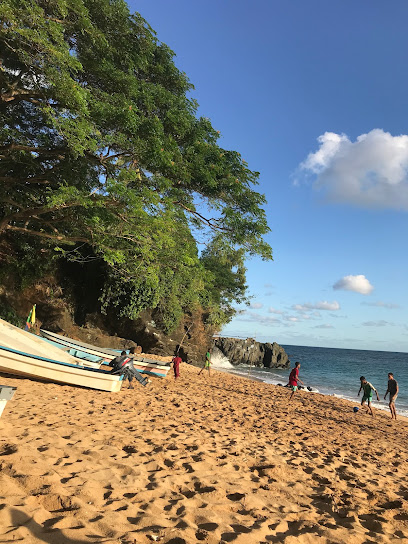
Moroni Comores
Discover Moroni's oldest mosque, a historic landmark showcasing Comoros' rich cultural heritage and enduring Islamic traditions since 1427.
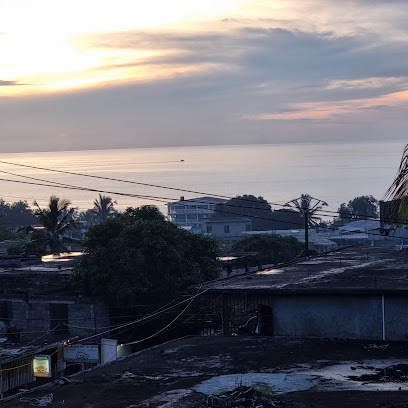
Moroni Waterfront
Explore the enchanting Moroni Waterfront, a serene coastal haven in Comoros offering stunning views, local culture, and unforgettable experiences.

Essential places to dine
Restaurant & Grill Le Coraya
Experience authentic Comorian cuisine at Restaurant & Grill Le Coraya in Itsandra – where every meal is a celebration of flavor.
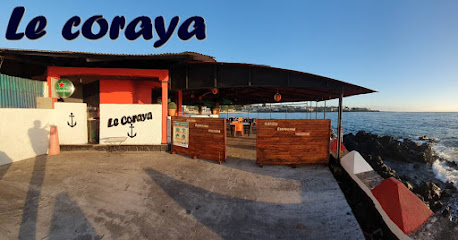
MoCafe
Experience authentic flavors at MoCafe in Moroni – where local charm meets culinary delight.
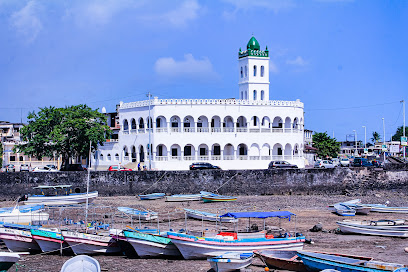
Restaurant L'Escale
Experience authentic Comorian cuisine at Restaurant L'Escale in Moroni - where every meal is a delightful journey through local flavors.
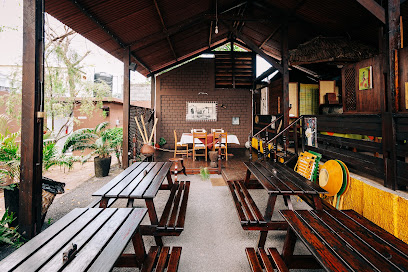
New Select Restaurant
Experience authentic Comorian cuisine at New Select Restaurant in Moroni – where local flavors meet culinary excellence.
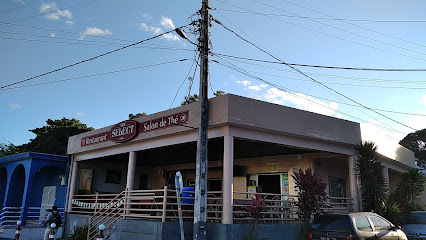
Le coelecanthe restaurant et piscine
Discover exquisite dining at Le Coelecanthe Restaurant et Piscine in Moroni – where local flavors meet tranquil poolside ambiance.
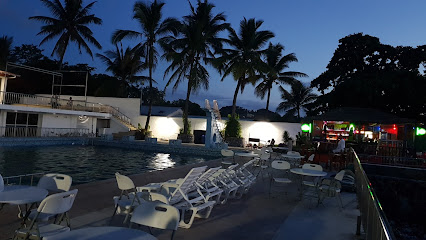
Chez Babou
Experience the perfect blend of local Comorian flavors and Indian cuisine at Chez Babou in Moroni.
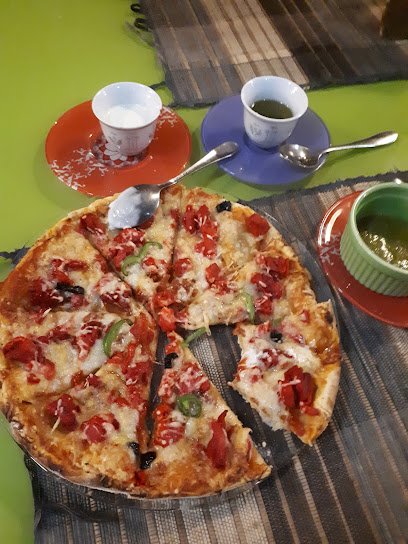
The Best269
Discover fast food bliss at The Best269 in Kavkaïvo, Moroni - where every bite takes you on a flavorful journey through Comoros.
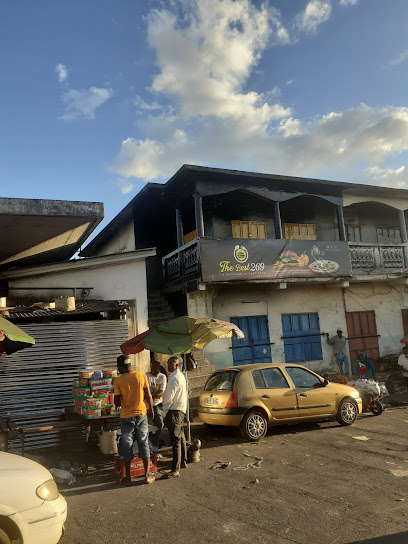
New Mumbai Restaurant
Experience authentic Comorian flavors at New Mumbai Restaurant in Moroni - a culinary gem that captures the essence of local cuisine.
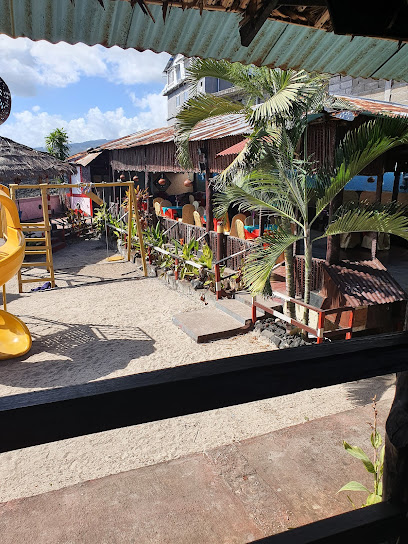
Zara Restaurant
Discover authentic Comorian cuisine at Zara Restaurant in Moroni, where every dish tells a story of flavor and tradition.
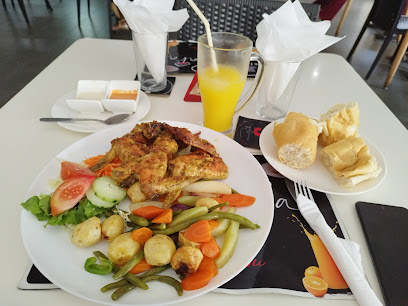
Cafe Des Artistes
Discover Café Des Artistes in Moroni - where local flavors meet artistic ambiance for an unforgettable dining experience.
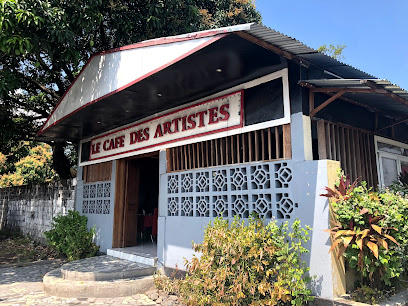
Les Saveurs des Îles
Discover the essence of Comorian cuisine at Les Saveurs des Îles in Moroni - a culinary journey through local flavors.
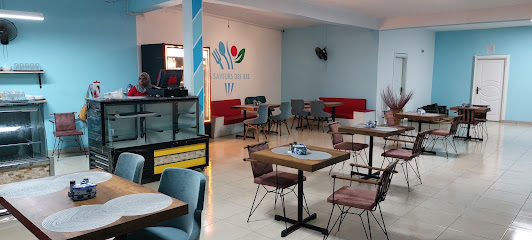
Café Dhow
Discover Café Dhow: A unique restaurant in Moroni blending culinary excellence with artistic charm amidst stunning coastal views.
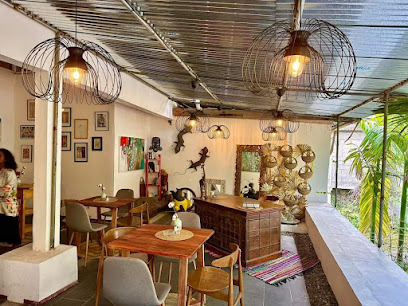
Chalet des Îles
Discover Chalet des Îles in Moroni - a delightful restaurant offering authentic Comorian cuisine amidst stunning scenery.
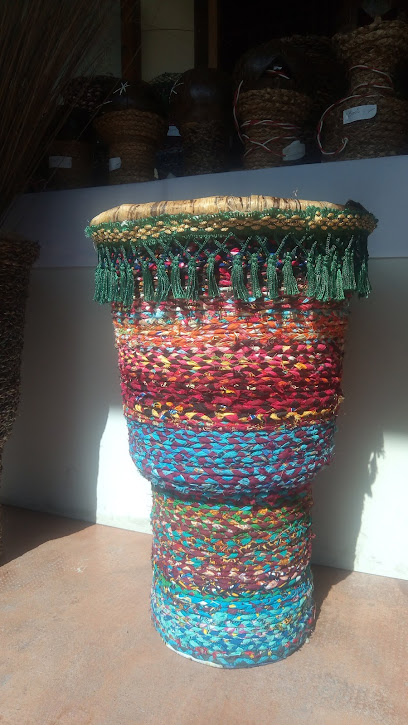
Le COMOCO
Experience the authentic flavors of Comoros at Le COMOCO, where fresh ingredients meet warm hospitality in Moroni's culinary heart.
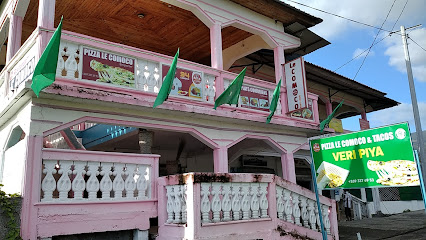
New Must Restaurant
Experience the vibrant flavors of Comoros at New Must Restaurant - where local cuisine meets international flair.
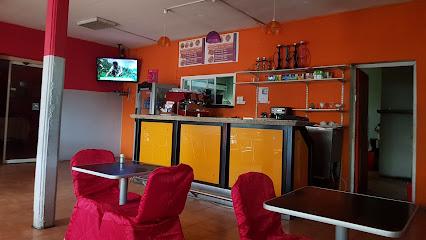
Markets, malls and hidden boutiques
Sawa Prix
Explore local flavors and essentials at Sawa Prix, a vibrant supermarket in Moroni, Comoros, showcasing the best of Comorian culture.
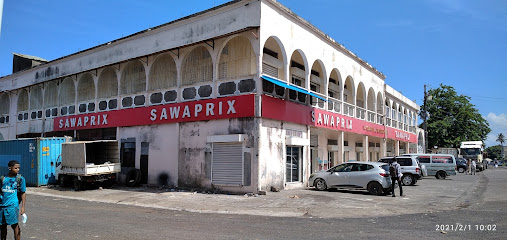
AdaMoon shop
Explore the vibrant AdaMoon Shop in Tsidje for a delightful taste of Comorian culture and local products.
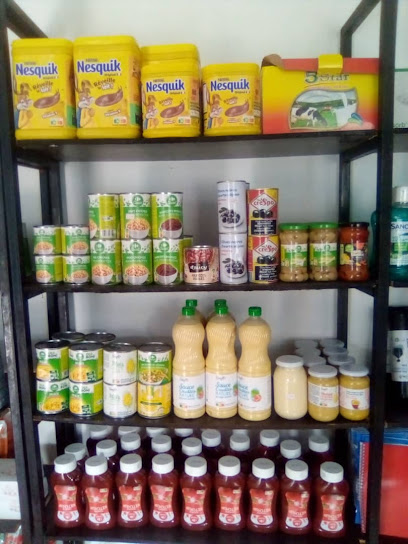
GNERERE FILS
Explore GNERERE FILS in Moroni for an authentic shopping experience filled with local culture and unique finds in the heart of Comoros.
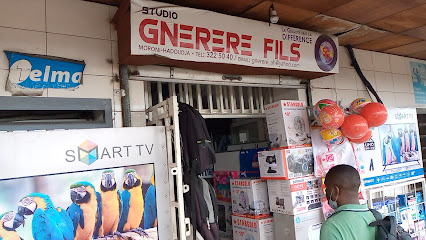
SAWA Prix
Discover the rich flavors of Comoros at SAWA Prix, a vibrant grocery store in Moroni offering fresh produce and local delicacies.
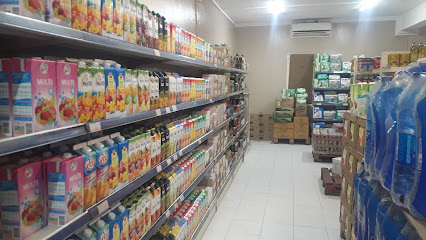
SARA MARKET
Discover the vibrant local culture and flavors at SARA MARKET, Moroni's premier supermarket for fresh produce and unique Comorian products.
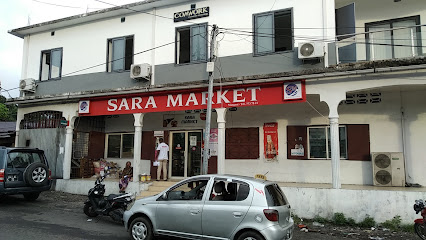
MASSIWA BAZAR
Explore the vibrant Massiwa Bazar in Moroni for an authentic taste of Comorian culture and cuisine amidst a bustling grocery store atmosphere.
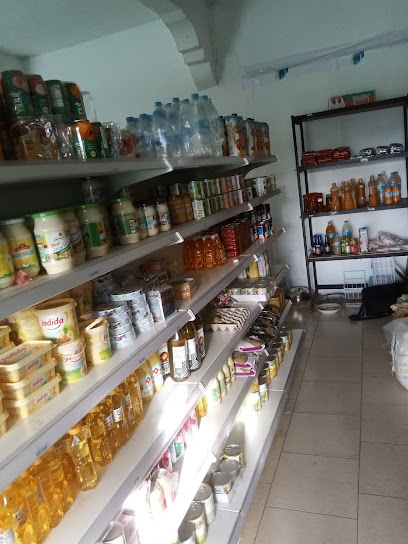
ENTREPÔTS PAM
Immerse yourself in the vibrant culture of Moroni at Entrepôts PAM, a store celebrating the unique flavors and crafts of the Comoros.

Pati's Delice
Experience the exquisite flavors of Comorian pastries at Pati's Delice in Moroni, where every bite is a celebration of culinary artistry.
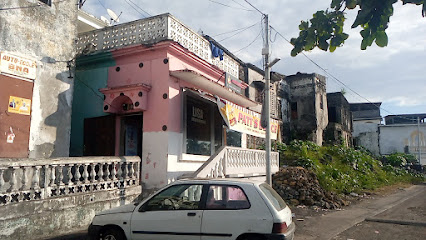
Abû Bakr Store
Explore local flavors and necessities at Abû Bakr Store, a welcoming grocery store in Moroni, Comoros, perfect for tourists seeking authentic experiences.
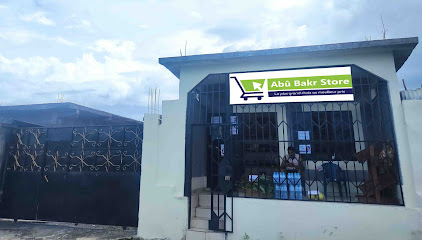
Jumwamji
Explore Jumwamji in Moroni, Comoros for authentic local crafts and souvenirs that capture the essence of Comorian culture.
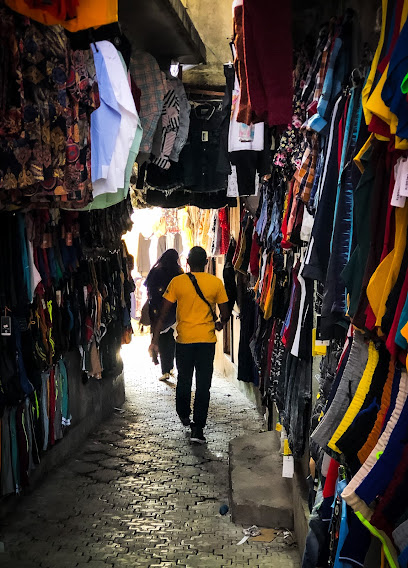
Magasin découvertes
Explore cutting-edge technology at Magasin Découvertes in Moroni, Comoros – your one-stop shop for all electronic needs.
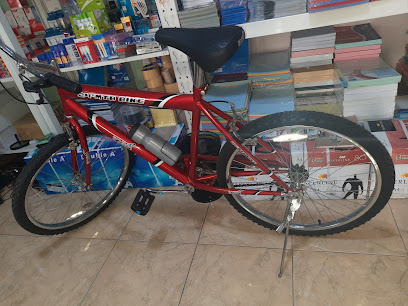
MAG MARKET
Experience the local culture at MAG MARKET, a charming supermarket in Moroni, offering a variety of goods and a taste of Comorian hospitality.
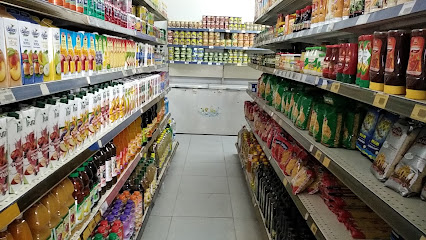
MAGASIN KRISHNA
Explore the best organic food store in Moroni, Comoros, for fresh, locally-sourced produce and a taste of sustainable living.

Boutique MAMAN RAÏSSA
Explore local flavors and unique treasures at Boutique MAMAN RAÏSSA, a must-visit grocery store in Moroni, Comoros, offering authentic products and island culture.
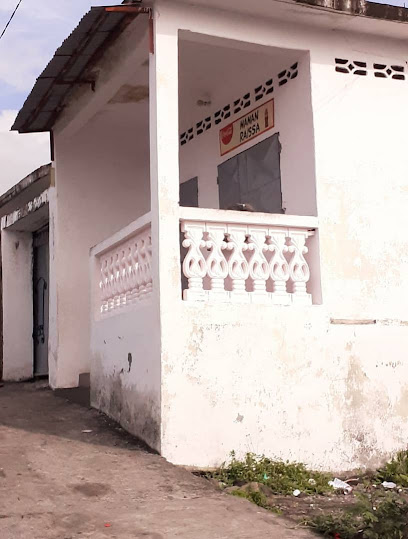
Naouir
Discover the essence of Comorian culture at Naouir, a vibrant store in Moroni offering authentic handcrafted treasures.

Essential bars & hidden hideouts
Restaurant & Grill Le Coraya
Experience the authentic flavors of Comoros at Restaurant & Grill Le Coraya, where local cuisine meets warm hospitality in a picturesque setting.
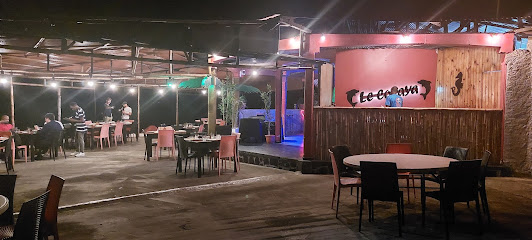
MoCafe
Experience the vibrant flavors of Comoros at MoCafe, a charming restaurant in Moroni that brings local cuisine to life.
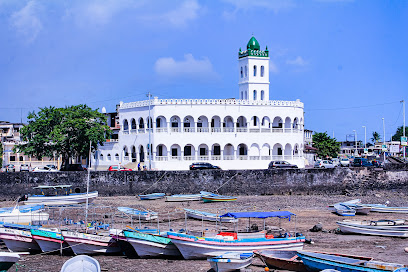
Wasta Boulangerie snack
Experience the authentic taste of Comorian cuisine at Wasta Boulangerie Snack, a local favorite in Asgaraly Moroni.
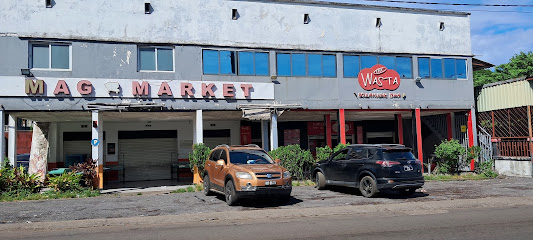
New Select Restaurant
Savor the authentic flavors of Comoros at New Select Restaurant, a must-visit for every tourist in Moroni.
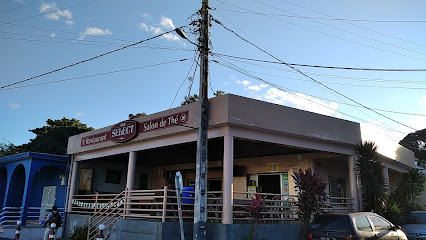
Comores Pizza
Experience the authentic taste of Comoros at Comores Pizza, where local flavors meet classic pizza in a cozy setting.
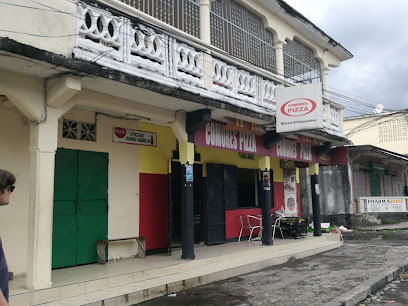
Le coelecanthe restaurant et piscine
Discover the flavors of Comoros at Le Coelecanthe Restaurant et Piscine, where exquisite cuisine meets a serene poolside atmosphere.
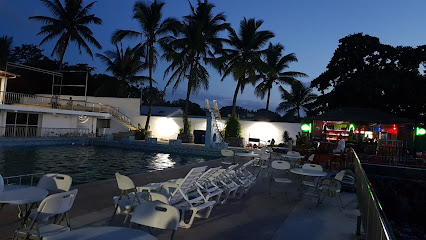
The Best269
Experience the best of fast food with a local twist at The Best269 in Moroni, Comoros, where flavor meets convenience.
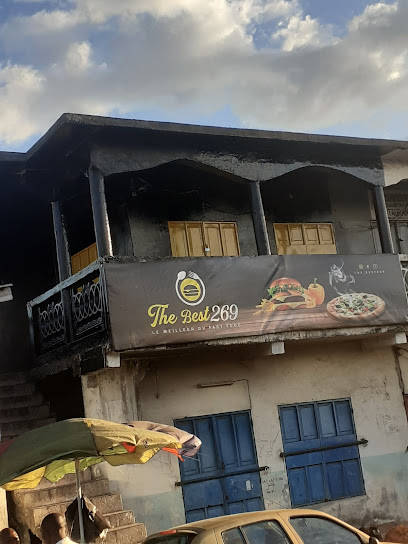
Cafe De Flore
Experience the culinary delights of Café De Flore in Moroni, Comoros – a perfect blend of local flavors and international cuisine.
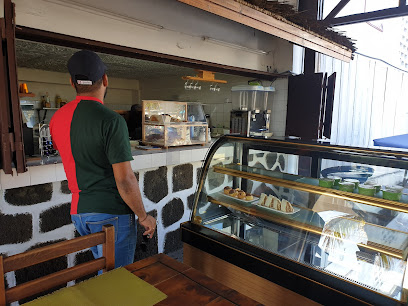
Cafe Des Artistes
Discover the flavors of Moroni at Café Des Artistes, where local cuisine meets international flair in a vibrant dining experience.
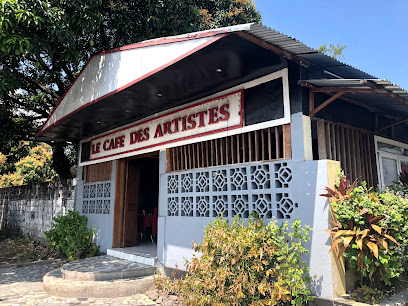
Le COMOCO
Discover the culinary delights of Moroni at Le COMOCO, where local flavors and welcoming ambiance come together for an unforgettable dining experience.
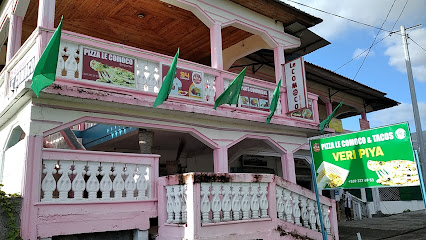
Chalet des Îles
Discover the authentic flavors of the Comoros at Chalet des Îles, where local cuisine meets breathtaking views in Moroni.
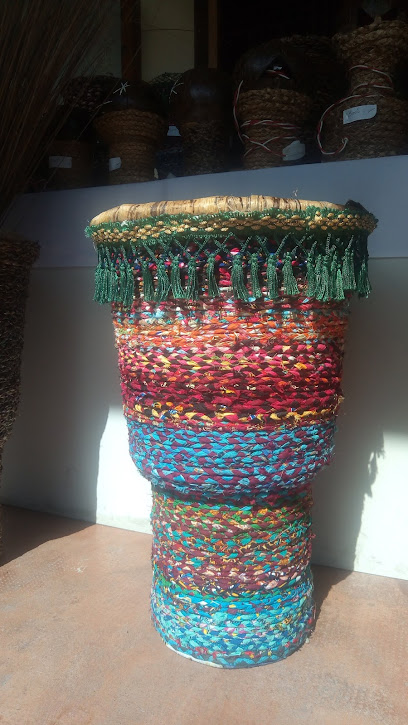
New Must Restaurant
Experience the vibrant culinary culture of Comoros at New Must Restaurant, where local flavors and warm hospitality await every visitor.
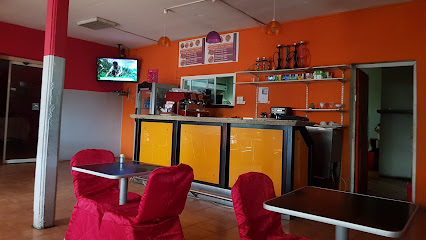
Restaurant Le Régal
Experience the rich flavors of Comorian cuisine at Restaurant Le Régal, a jewel in Moroni's culinary scene offering a delightful dining experience.
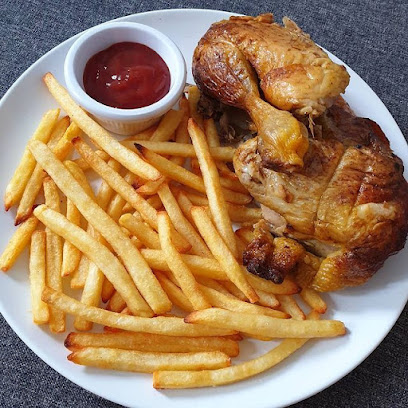
Liquor shop චයින බාර් එක
Discover the lively atmosphere and unique drinks at Liquor Shop චයින බාර් එක in Mde, Comoros, where locals and tourists mingle in a vibrant setting.

Local Phrases
-
- HelloSalam
[sah-lahm] - GoodbyeKwaherini
[kwah-heh-ree-nee] - YesEwe
[eh-weh] - NoLaa
[lah] - Please/You're welcomeAbaraka
[ah-bah-rah-kah] - Thank youShukran
[shook-rahn] - Excuse me/SorrySamahani
[sah-mah-hah-nee] - How are you?Habari gani?
[hah-bah-ree gah-nee] - Fine. And you?Safi. Na wewe?
[sah-fee. nah weh-weh] - Do you speak English?Unazungumza Kiingereza?
[oo-nah-zoon-goom-zah kee-een-geh-reh-zah] - I don't understandSielewi
[see-leh-oo-ee]
- HelloSalam
-
- I'd like to see the menu, pleaseNingependa kuona menyu, tafadhali
[ning-eh-pen-dah kwoh-nah meh-nyoo, tah-fah-dhah-lee] - I don't eat meatSi kula nyama
[see koo-lah nyah-mah] - Cheers!Afya!
[ahf-yah] - I would like to pay, pleaseNingependa kulipa, tafadhali
[ning-eh-pen-dah koo-lee-pah, tah-fah-dhah-lee]
- I'd like to see the menu, pleaseNingependa kuona menyu, tafadhali
-
- Help!Usaidizi!
[oo-sah-ee-dee-zee] - Go away!Nenda zako!
[nen-dah zah-koh] - Call the Police!Piga polisi!
[pee-gah poh-lee-see] - Call a doctor!Piga daktari!
[pee-gah dahk-tah-ree] - I'm lostNimepotea
[nee-meh-poh-teh-ah] - I'm illNinaumwa
[nee-nah-oom-wah]
- Help!Usaidizi!
-
- I'd like to buy...Ningependa kununua...
[ning-eh-pen-dah koo-noo-noo-ah] - I'm just lookingNinaangalia tu
[nee-nah-ahn-gah-lee-ah too] - How much is it?Ni bei gani?
[nee bay gah-nee] - That's too expensiveHilo ni ghali sana
[hee-loh nee gah-lee sah-nah] - Can you lower the price?Unaweza kushusha bei?
[oo-nah-weh-zah koo-shoo-shah bay]
- I'd like to buy...Ningependa kununua...
-
- What time is it?Saa ngapi?
[sah ngah-pee] - It's one o'clockSaa moja
[sah moh-jah] - Half past (10)Nusu kumi
[noo-soo koo-mee] - MorningAsubuhi
[ah-soo-boo-hee] - AfternoonMchana
[meh-chah-nah] - EveningJioni
[joh-nee] - YesterdayJana
[jah-nah] - TodayLeo
[leh-oh] - TomorrowKesho
[keh-shoh] - 1Moja
[moh-jah] - 2Mbili
[mbee-lee] - 3Tatu
[tah-too] - 4Nne
[n-neh] - 5Tano
[tah-noh] - 6Sita
[see-tah] - 7Saba
[sah-bah] - 8Nane
[nah-neh] - 9Tisa
[tee-sah] - 10Kumi
[koo-mee]
- What time is it?Saa ngapi?
-
- Where's a/the...?Iko wapi...?
[ee-koh wah-pee] - What's the address?Anuani ni gani?
[ah-noo-ah-nee nee gah-nee] - Can you show me (on the map)?Unaweza kunionyesha (kwenye ramani)?
[oo-nah-weh-zah koo-nee-oh-nyeh-shah (kweh-nyeh rah-mah-nee)] - When's the next (bus)?Basi lijalo ni saa ngapi?
[bah-see lee-jah-loh nee sah ngah-pee] - A ticket (to ....)Tiketi (kwenda ...)
[tee-keh-tee (kwehn-dah ...)]
- Where's a/the...?Iko wapi...?
History of Moroni
-
Moroni, the capital of the Comoros, was founded in the 10th century by Arab traders. The city's strategic location on the west coast of Grande Comore (Ngazidja) made it an essential hub for trade between Africa, the Middle East, and Asia. The early settlers, predominantly of Arab and Persian descent, left a lasting cultural and architectural impact on the city.
-
From the 15th to the 19th centuries, Moroni was part of the Sultanate of Bambao, one of the island's several sultanates. The sultans played a pivotal role in the political and economic life of the region. They established fortified towns, including the old city of Moroni, which became a center of Islamic learning and culture.
-
In the late 19th century, the Comoros archipelago, including Moroni, came under French colonial rule. This period saw significant changes in the city's infrastructure and administration. The French built roads, schools, and hospitals, and introduced new agricultural practices. However, the colonial period also brought about social and economic inequalities that impacted the local population.
-
The mid-20th century was marked by a growing independence movement in the Comoros. Moroni became a focal point for political activism and protests against French rule. Leaders like Ahmed Abdallah and Ali Soilih emerged from this period, advocating for self-governance and national unity. In 1975, the Comoros gained independence, and Moroni was declared the capital of the new nation.
-
Since independence, Moroni has continued to evolve. The city has seen significant urbanization and development, with new governmental buildings, educational institutions, and cultural centers being established. Despite facing challenges such as political instability and economic difficulties, Moroni remains a vibrant city, rich in history and cultural diversity.
-
Moroni is renowned for its cultural heritage, which reflects a blend of African, Arab, and French influences. The city's old medina, with its narrow alleys and historic mosques, offers a glimpse into its storied past. Festivals such as Eid al-Fitr and the National Day of Independence are celebrated with great fervor, featuring traditional music, dance, and cuisine.
Moroni Essentials
-
Moroni, the capital city of Comoros, is primarily accessed via Prince Said Ibrahim International Airport (HAH), located approximately 23 kilometers from the city center. International flights connect Moroni to major hubs such as Nairobi, Addis Ababa, Dar es Salaam, and Paris. From the airport, you can take a taxi or arrange for a hotel shuttle to reach the city.
-
Within Moroni, taxis are the most common form of transport and are relatively affordable. Shared taxis, known as 'taxi-brousse,' are a popular option for longer distances and connecting to other parts of the island. Public buses are available but can be crowded and less reliable. Renting a car is an option, but be prepared for varying road conditions. Walking is feasible for short distances, especially in the city center.
-
The official currency in Comoros is the Comorian Franc (KMF). Credit cards are not widely accepted, so it is advisable to carry sufficient cash. ATMs are available in Moroni but may not always be reliable. It is recommended to exchange currency at official exchange bureaus or banks in the city.
-
Moroni is generally safe for tourists, but standard precautions should be taken. Petty crime, such as pickpocketing and bag snatching, can occur in crowded areas. It is advisable to avoid walking alone at night in unfamiliar neighborhoods. Areas like Volo Volo Market can be bustling and require extra vigilance. Always keep your belongings secure and be aware of your surroundings.
-
In case of emergency, dial 111 for police, 112 for medical emergencies, and 118 for fire services. The main hospital in Moroni is El-Maarouf National Hospital, which provides emergency medical care. It is advisable to have travel insurance that covers medical emergencies. Pharmacies are available in the city for minor health issues.
-
Fashion: Do dress modestly, especially in religious and public places. Avoid wearing revealing clothing. Religion: Do respect local customs and traditions. Always remove your shoes when entering mosques and dress appropriately. Public Transport: Do be respectful and patient when using public transport. Don't expect strict schedules. Greetings: Do greet people with a handshake or a nod. It is polite to greet elders and show respect. Eating & Drinking: Do try local cuisine and accept food offerings graciously. Don’t eat with your left hand, as it is considered impolite.
-
To experience Moroni like a local, visit the Volo Volo Market where you can buy fresh produce, spices, and traditional goods. Engage with the locals, who are often hospitable and willing to share insights about their culture. Don't miss a visit to the Old Friday Mosque, a historic site with stunning views. For a unique experience, take a boat trip to nearby islands such as Moheli or Anjouan.
Trending Landmark in Moroni
-
Retaj Moroni Hotel
-
Golden Tulip Grande Comore Moroni Resort & Spa
-
Prince Said Ibrahim International Airport
-
Ngazidja
-
Hotel restaurant Jardin De La Paix
-
Maloudja Bungalows
-
Bouni Beach
-
Grande Mosquée de Moroni مسجد
-
Dos du Dragon
-
Le Habana
-
Adore Comores
-
Comores Market VoloVolo
-
Mosquée Mssihiri wa Cheik Ahmed
-
Villa Saifoudine
-
Le Gala - Mohéli
Nearby Cities to Moroni
-
Things To Do in Iconi
-
Things To Do in Ouani
-
Things To Do in Domoni
-
Things To Do in Acoua
-
Things To Do in Sada
-
Things To Do in Chiconi
-
Things To Do in Koungou
-
Things To Do in Dembeni
-
Things To Do in Mamoudzou
-
Things To Do in Chirongui
-
Things To Do in Bandrele
-
Things To Do in Majunga
-
Things To Do in Mahajanga
-
Things To Do in Nosy Be
-
Things To Do in Antsiranana










